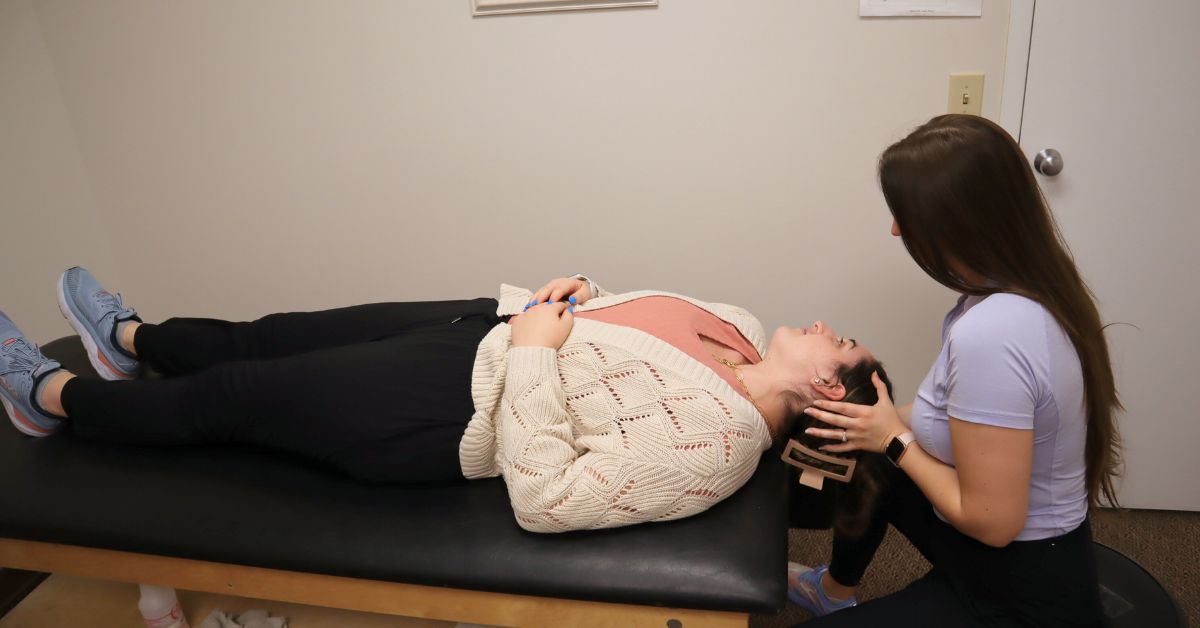
Overcoming Vertigo
Are you battling with unsettling feelings of dizziness that disrupt your everyday activities? You could be grappling with vertigo. At Carolina Physical Therapy, we offer specialized vertigo treatment aimed at relieving your symptoms and restoring your balance. Our seasoned team of physical therapists are experts in the intricate world of vertigo and are dedicated to delivering personalized care that suits your individual needs.
Our approach to vertigo treatment includes diagnosing the underlying cause of your vertigo and creating a detailed treatment plan. With a variety of specialized exercises and vestibular rehabilitation techniques, we strive to eliminate the root cause of your vertigo and enhance your overall quality of life.
Unraveling the Mystery of Vertigo
Vertigo, a common condition, triggers a spinning sensation leading to dizziness and loss of balance. While it is often associated with an issue in the inner ear, other factors can also contribute. The most common cause of vertigo is benign paroxysmal positional vertigo (BPPV), a condition where tiny crystals in the inner ear become dislodged and disrupt fluid balance, causing dizziness. Other potential causes include Meniere’s disease, vestibular neuritis, and labyrinthitis.
Vertigo symptoms can vary from person to person but generally include a spinning sensation, dizziness, nausea, and balance issues. These symptoms can be triggered by specific head movements or positional changes. If you experience these symptoms, medical attention is crucial to diagnose the root cause and initiate appropriate vertigo treatment.
Vertigo Diagnosis and Tests
Diagnosing vertigo involves careful evaluation of symptoms, medical history, and physical examination. Several tests can help identify the cause of vertigo, guiding the treatment for vertigo dizziness. As your vestibular therapists, we will gather a comprehensive medical history, understanding your symptoms, their frequency and duration, and any triggers. A physical examination will be conducted to assess your balance, coordination, and eye movements. We may perform the Dix-Hallpike maneuver to provoke vertigo symptoms and observe any characteristic eye movements.
Additional tests may include:
- Audiometry: A hearing test to evaluate the inner ear’s function and identify any hearing loss or abnormalities.
- Vestibular function tests: These tests assess the inner ear and vestibular system’s functioning, crucial for maintaining balance. Examples include electronystagmography (ENG) and videonystagmography (VNG).
- Magnetic resonance imaging (MRI): An MRI scan may be advised to rule out any structural abnormalities or tumors in the brain or inner ear causing vertigo.
- Blood tests: Certain blood tests can check for underlying medical conditions contributing to vertigo, such as infections or metabolic disorders.
Consulting with a healthcare professional, like a vestibular therapist specializing in vestibular rehabilitation, is essential for an accurate diagnosis and appropriate treatment plan.
Effective Treatment for Vertigo Dizziness
Several treatment options are available to relieve vertigo symptoms and enhance your quality of life. These include medication, physical therapy exercises, and self-care techniques.
Medication: In some cases, medication may be prescribed to manage vertigo symptoms, such as antihistamines, antiemetics, and benzodiazepines.
Physical Therapy: Physical therapy can be highly beneficial for vertigo. Our trained vestibular therapists guide you through exercises that improve balance and reduce dizziness, such as head and eye movements, balance training, and repositioning maneuvers.
Home Remedies and Self-Care: Good sleep habits, avoiding triggers like caffeine and alcohol, staying hydrated, and practicing relaxation techniques can help manage vertigo symptoms. Modifying your living environment to reduce fall risks is also beneficial.
If you’re struggling with vertigo, consult with a healthcare professional to identify the underlying cause and develop an appropriate treatment plan. Our team at Carolina Physical Therapy is here to provide a comprehensive evaluation and custom treatment options to help you conquer vertigo and improve your well-being.
Preventing and Managing Vertigo
Vertigo can significantly disrupt your life. While seeking medical help is crucial, certain lifestyle changes can prevent vertigo episodes and help manage them.
To prevent vertigo, consider the following:
- Stay hydrated throughout the day.
- Avoid caffeine and alcohol.
- Avoid sudden head movements or changes in body position.
- Practice relaxation techniques, such as yoga, to reduce stress and anxiety.
- Regular exercise can improve balance and strengthen posture-supporting muscles.
Managing vertigo effectively includes:
- Finding a safe and comfortable place to sit or lie down during an episode.
- Avoid bright lights, loud noises, and busy environments.
- Focusing on a fixed point or object to stabilize vision and minimize dizziness.
- Use handrails or support when moving around to prevent falls.
- Consider using assistive devices, such as canes or walkers, for additional stability.
Don’t let vertigo dictate your life any longer. Contact Carolina Physical Therapy today to request a consultation and start your journey towards effective vertigo treatment. If severe or frequent vertigo episodes impact your life, it’s best to seek medical help. A healthcare professional, such as a vestibular therapist specializing in vestibular rehabilitation, can assess your condition and create a personalized treatment plan tailored to your needs.
